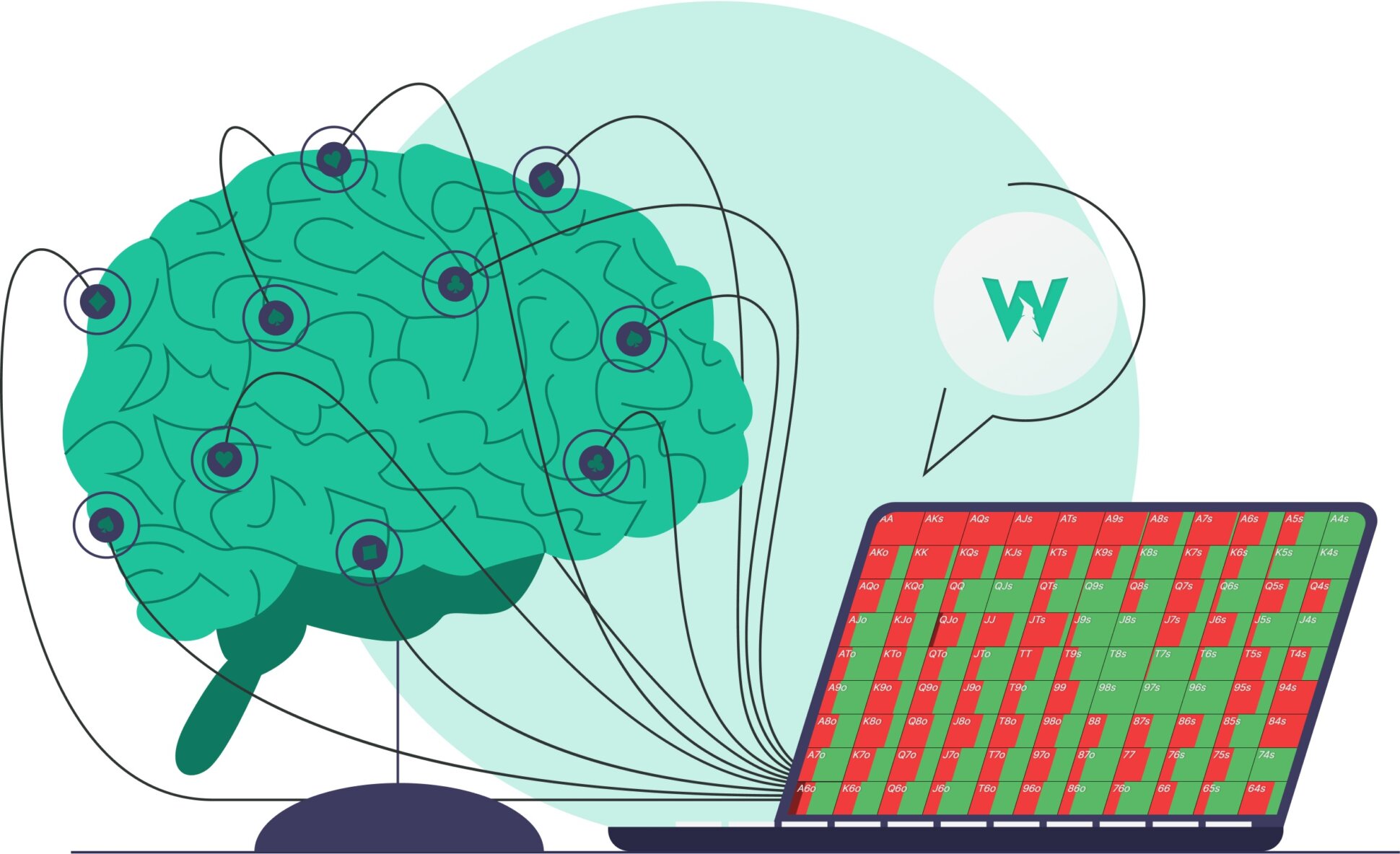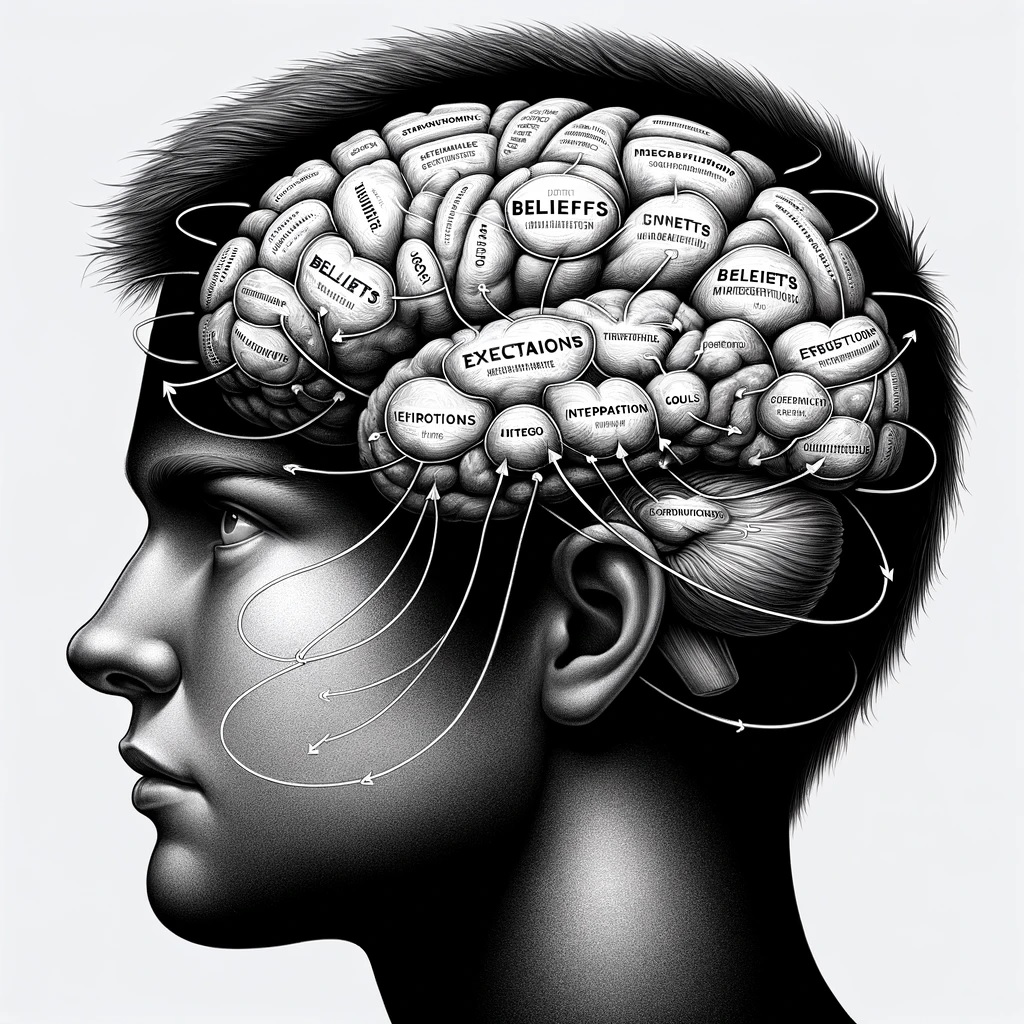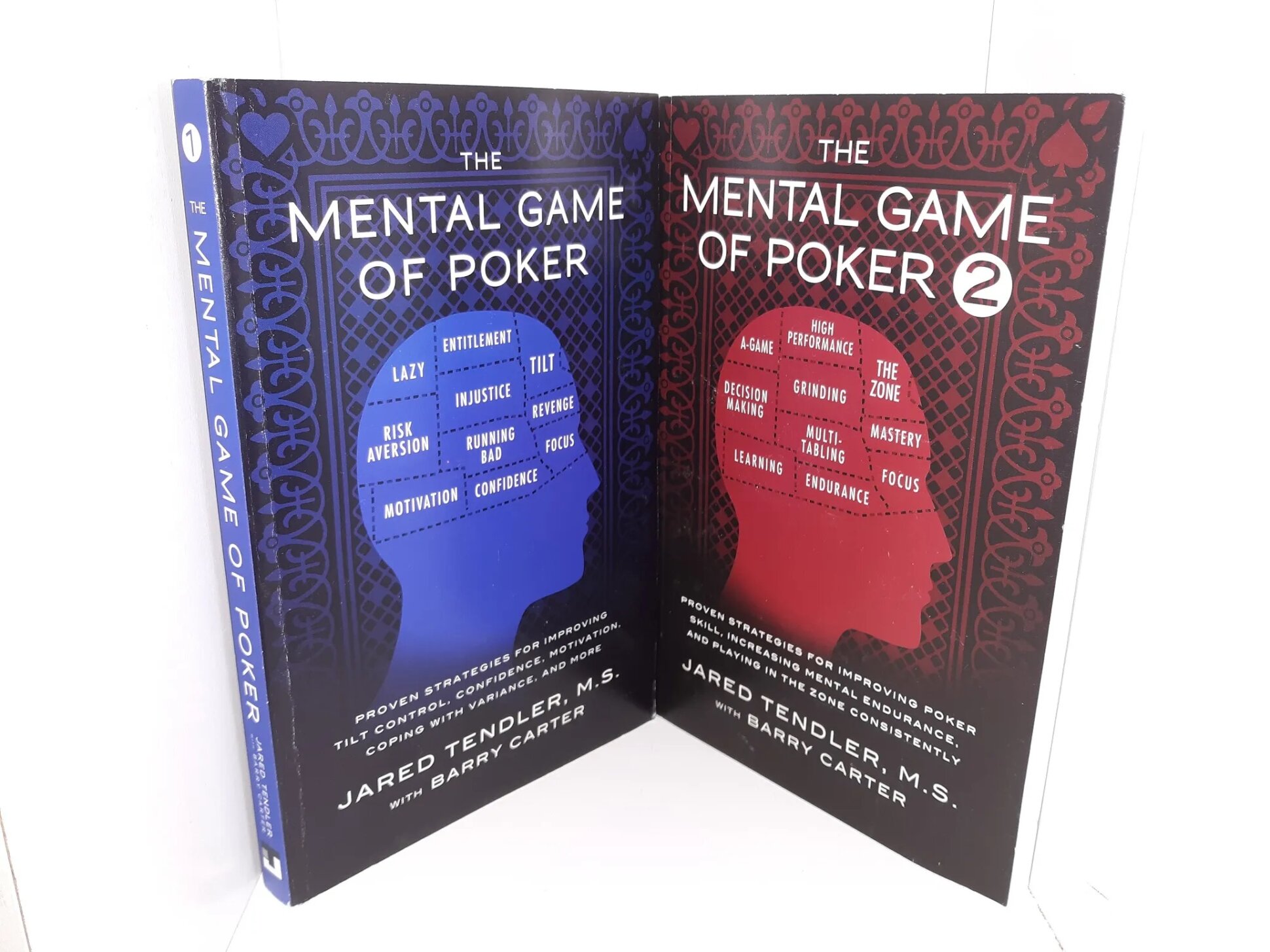Poker is a game that fuses elements of chance with logical skill, but experienced players know that success also hinges on having the right mindset to perform maximilly.

While mastering the mathematical aspects of the game is essential, developing a winning mindset is equally crucial.
A strong mental game is often the difference between a good player and a great one.
This wasn’t commonly known in the early days of the poker boom, but ground-breaking work from Jared Tendler and his co-author Barry Carter transformed how poker players learn and improve beyond recognition.
Here we will explore how to cultivate a winning mindset in poker, drawing insights from the experiences of the best players and mental game expert Jared Tendler.
Understanding the Winning Mindset
A winning mindset in poker encompasses emotional control, confidence, adaptability, and focus. It’s about more than just understanding the odds or knowing when to bluff, it’s about how you approach the game mentally.
Players with a winning mindset can navigate the emotional highs and lows of poker, make rational decisions under pressure, and continually adapt their strategies based on their opponents and circumstances.
Emotions play a significant role in poker. Whether it’s the thrill of winning a big pot or the frustration of losing a hand, emotions can cloud judgment and lead to poor decisions.
Recognising and managing these emotions is essential for maintaining a winning mindset. As Jared Tendler emphasises in his work, players must develop strategies to address their emotions as they arise during gameplay.
Key Components of a Winning Mindset
Emotional Control
Emotional control is perhaps the most critical aspect of a winning mindset. The ability to manage emotions during play is a reliable way to prevent you from going on tilt.
Practising mindfulness can help players stay present and focused during sessions. Techniques such as deep breathing or meditation can ground players when they feel overwhelmed.
Tendler suggests implementing real-time strategies to address emotions as they occur. For instance, if you notice yourself becoming frustrated after a bad beat, take a moment to breathe deeply and refocus before continuing.
Confidence is vital in poker. It influences decision-making and risk-taking behaviour. Players who believe in their abilities are more likely to follow through with the program of hard work necessary to succeed.
Poker is an ever-changing game. Being able to adapt your strategy based on your opponents’ behaviour is essential for long-term success.
Developing the ability to read opponents’ tells and adjust your strategy accordingly can give you an edge.
Being rigid in your approach can lead to predictable play. Successful players are those who can shift gears based on the dynamics at the table.

Focus and Concentration
Maintaining focus during long sessions is crucial for making optimal decisions. Distractions can lead to costly mistakes.
Before each session, set clear objectives — whether it’s improving your hand reading skills or practising specific strategies.
Creating an environment conducive to concentration is mandatory if you have aims to play your A-game. Eliminate distractions such as phone notifications or excessive noise.
Practical Strategies for Developing a Winning Mindset
Goal Setting
Setting clear, achievable goals is fundamental for improvement in poker. Goals provide direction and motivation.
How to Set Effective Goals
Ensure your goals are Specific, Measurable, Achievable, Relevant, and Time-bound.
For example, instead of saying “I want to be better at poker,” set a goal like “I will review five hands each week to improve my decision-making.”
Tracking Progress
Keep track of your goals and celebrate small victories along the way. This practice not only boosts motivation but also reinforces positive habits.
Continuous Learning
The best players are those who never stop learning. Continuous education helps refine skills and adapt to changing trends in the game.
Methods for Continuous Learning
Regularly reviewing your hands allows you to analyse mistakes and successes critically.
Books by experts like Jared Tendler offer valuable insights into mental game aspects which will transform your game beyond recognition.
You can also consider seeking out coaching from qualified players who can provide personalised feedback on your gameplay.
Bankroll Management
Effective bankroll management is essential for reducing financial stress and enabling disciplined play.
Establish limits on how much you’re willing to lose in a session or over time. Accept that variance is part of poker and managing your bankroll effectively allows you to ride out downswings without affecting your mental state.
Cultivating Mental Resilience
Variance refers to the natural fluctuations in wins and losses that occur in poker due to luck and skill distribution among players.
Understand that losing streaks are part of the game; maintaining composure during these times is crucial.
Shift your focus from short-term results to long-term improvement. This perspective helps mitigate emotional responses to variance.
Practising Patience
Patience is vital in poker because impulsive decisions often lead to long-term losses.
Resist the urge to play every hand as a beginner, instead prefer to wait for favourable situations where you that you have an advantage.
Self-Awareness and Reflection
Self-awareness involves understanding your emotional triggers and how they affect your gameplay.
Keeping a poker journal allows you to reflect on sessions and note emotional responses, and identify patterns over time.
It is also a good idea to engage with fellow players about experiences that can provide new perspectives on handling emotions and improving gameplay.

The Long-Term Journey
Consistency in Practice
Regular practice reinforces skills and helps solidify a winning mindset over time. Establishing a routine that includes regular practice sessions helps maintain momentum in skill development.
Focus on gradual improvement rather than overnight success. This mindset fosters resilience against setbacks.
Community Engagement
Engaging with other players enriches your learning experience through shared insights and support.
Participate in online forums where you can discuss strategies, share experiences, and learn from others.
Building relationships with other players can also open doors for collaboration or mentorship opportunities.
When the time is right, investing in professional coaching can significantly enhance both your skills and mental game strategies.
Coaches provide tailored advice based on your specific strengths and weaknesses and hold you accountable for your goals.
Developing a winning mindset in poker is an ongoing journey that requires dedication, self-awareness, and adaptability.
By focusing on all of the factors discussed above, players can cultivate the mental fortitude necessary for long-term success at the tables.
- Get the best rakeback deals
- See the best poker promotions
- View the latest poker news
- Get the best No Deposit Poker Bonuses
- Benefit from the biggest poker bonus
- Calculate your rakeback with the rakeback calculator
Terms and conditions apply. New customer offer and 18+ only. Should you require help regarding your betting pattern, please visit www.begambleaware.org.






















